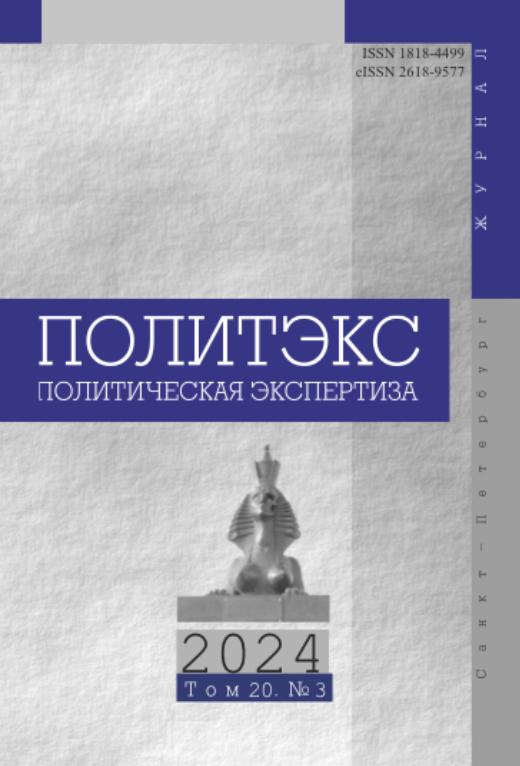RISKS, THREATS AND CHALLENGES OF CONTEMPORARY SOCIO-POLITICAL COMMUNICATIONS UNDER CONDITIONS OF THE ARTIFICIAL INTELLIGENCE AND NEURAL NETWORK TECHNOLOGIES EVOLUTION
DOI:
https://doi.org/10.21638/spbu23.2024.307Abstract
This article analyzes the digitalization of traditional processes of socio-political communication in the context of the development of artificial intelligence and neural networks technologies. This study identifies the risks, threats, and challenges of contemporary sociopolitical communications in the context of the development of artificial intelligence and neural network technologies. To achieve this goal, the methodological optics of the study is based on the principle of an ensemble of scientific approaches necessary to achieve the goal set in the work: discourse analysis, comparative analysis, critical analysis, reconceptualization, predictive scenario method, and scenario techniques. This study examines three main factors of contemporary digitalization: the rapid development of neural network technologies, the active use of algorithms operating on the basis of artificial intelligence in the digital communications space, and Big Data technologies, which, according to the authors, act as a resource base for “smart” digitalization. The authors focus on the risks, threats, and challenges associated with contemporary digitalization in terms of value-semantic transformations of traditional socio-political communications, information encapsulation of online users, and automation of socio-political interaction based on algorithmization of digital communication practices. In this study, the authors conclude that one of the main factors in preventing risks, threats, and challenges associated with the digitalization of sociopolitical communication processes is the presence of digital technological sovereignty in a contemporary state. As the variety of digital solutions grows and the evolution of “smart” technologies, states will increasingly be faced with the need to protect their traditional socio-political spaces, prevent controlled external transformation of the value-semantic and ideological foundations and principles of their existence, as well as models of socio-political behavior on the part of technologically developed interventionist states seeking to preserve the existing world order and their own geopolitical dominance.
Keywords:
ARTIFICIAL INTELLIGENCE, NEURAL NETWORKS, ALGORITHMS, SOCIO-POLITICAL COMMUNICATION, DIGITAL SOVEREIGNTY, MASS CONSCIOUSNESS, DIGITAL COMMUNICATION
Downloads
Downloads
Published
How to Cite
Issue
Section
License
Articles of "Political Expertise: POLITEX" are open access distributed under the terms of the License Agreement with Saint Petersburg State University, which permits to the authors unrestricted distribution and self-archiving free of charge.




